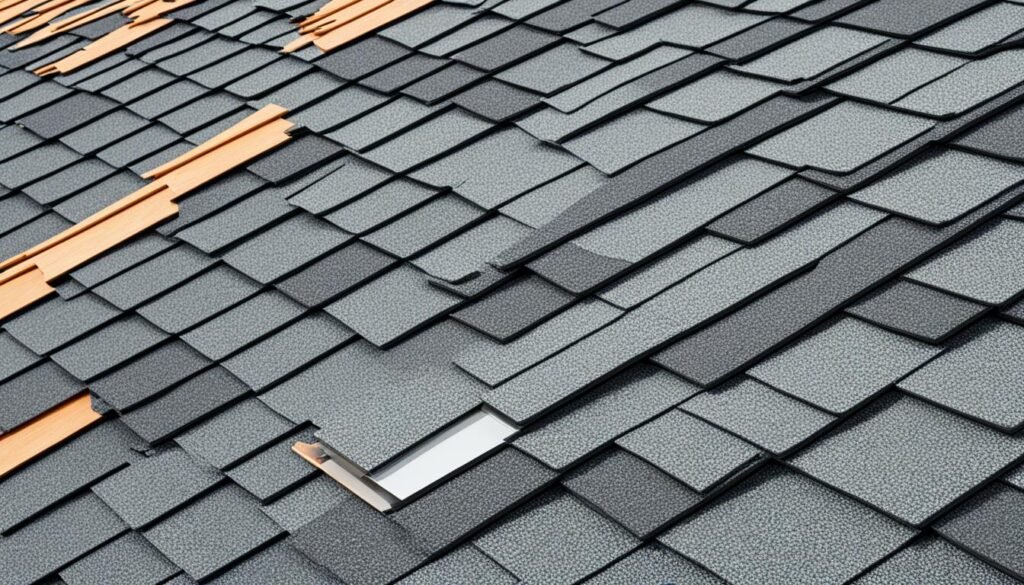Did you know that choosing the right roofing material can significantly impact the cost of commercial construction? In fact, the type of roof you select can be the most expensive part of the entire project. Whether you’re renovating an existing building or embarking on a new construction endeavor, understanding the costs associated with different roofing materials is crucial for budget allocation and decision making.
Key Takeaways
- Slate is the most expensive roofing material in commercial construction, with costs ranging from $15.00 to $30.00 per square foot.
- Asphalt shingles, metal roofs, composite shingles, and cedar shake roofs are popular alternatives with varying price ranges.
- Factors such as durability, aesthetics, and maintenance requirements should also be considered when choosing roofing materials.
- Consulting with professionals can help you make an informed decision that aligns with your project’s budget and requirements.
- Properly allocating your construction budget for the roof can help prevent unexpected expenses and ensure a successful project.
Cost Comparison of Popular Roofing Materials
In commercial construction projects, the choice of roofing material plays a crucial role in determining building construction expenses. Different roofing materials have varying costs, making it essential to consider their price range when planning the construction industry expenditures. Here is a cost comparison of popular roofing materials commonly used in commercial projects:
Asphalt Shingle Roof
The cost of an asphalt shingle roof can range from \$3.68 to \$7.50 per square foot, depending on the complexity of the roof.
Metal Roof
Metal roofs are another popular option, with costs ranging from $4.50 to $15.00 per square foot. The final price will depend on factors such as the type and complexity of the metal roof chosen.
Composite Shingle Roof
Composite shingle roofs offer versatility and can resemble more expensive materials. Their cost ranges from $10.00 to $20.00 per square foot, depending on the type of shingle selected.
Cedar Shake Roof
If you prefer a natural and aesthetically pleasing roof, cedar shake is an excellent choice. The cost of cedar shake roofs typically falls between $14.00 and $18.00 per square foot.
Slate Roof
For those aiming to create a truly high-end and luxurious look, slate roofs are the epitome of elegance. However, they come with a hefty price tag ranging from $1,000 to $3,000 per square foot.
These cost comparisons provide an overview of the major expenses associated with each roofing material, helping you make an informed decision based on your budget and construction project requirements. Take the time to evaluate the construction industry expenditures and select the roofing material that meets your needs best.

Factors to Consider When Choosing Roofing Materials
When embarking on a commercial construction project, one of the most critical decisions you’ll make is choosing the right roofing materials. While construction project budgeting and major construction expenses will play a significant role in your selection, it’s equally important to consider other factors such as durability, aesthetics, and maintenance requirements.
Slate and cedar shake roofs, although they may be the most expensive options, offer exceptional durability and a high-end appearance. These materials have long lifespans, ensuring that your investment lasts for decades to come. However, it’s worth noting that installing slate or cedar shake roofs may require additional framing or retrofitting, which can add to the overall cost.
If you are working with a tighter budget, asphalt shingle roofs are a more affordable and widely used alternative. While they may not offer the same longevity as slate or cedar shake, they provide adequate protection and are available in a variety of styles and colors to suit your aesthetic preferences.
For those seeking a balance between durability and cost-effectiveness, metal roofs are an excellent choice. They offer exceptional resistance to extreme weather conditions and often come with extended warranties, making them a long-term investment for your construction project. Alternatively, composite shingle roofs can mimic the appearance of high-priced building materials such as slate or cedar shake at a fraction of the cost. This makes them a popular option for those looking to achieve a more upscale aesthetic without breaking the construction project budget.
Therefore, when deciding on roofing materials, make sure to evaluate factors beyond their cost alone. By considering attributes like durability, aesthetics, and maintenance requirements, and seeking advice from professionals, you can make an informed decision that aligns with your construction project’s budget and requirements.
FAQ
What is the most expensive type of roofing material in commercial construction?
Slate is the most expensive type of roofing material in commercial construction. The cost can start around $15.00 per square foot and go up to around $30.00 or more per square foot.
How does the cost of slate roofs compare to asphalt roofs?
Slate roofs are four times more expensive than asphalt roofs.
What are the cost ranges for other popular roofing materials in commercial construction?
The cost of an asphalt shingle roof can range from $3.68 to $7.50 per square foot. Metal roofs can cost around $4.50 to $15.00 per square foot, depending on the type and complexity. Composite shingle roofs can range from $10.00 to $20.00 per square foot, while cedar shake roofs can cost around $14.00 to $18.00 per square foot.
What factors should be considered when choosing roofing materials for commercial construction?
When choosing roofing materials for commercial construction, it is important to consider factors such as durability, aesthetics, and maintenance requirements. It is also essential to weigh these factors against the project’s budget and requirements.